Knowing the average lifetime of brake rotors on your vehicle is something any responsible car owner should know. You don’t want to be cruising down the road, gazing into the distance and have to suddenly slam on the brakes to avoid rear-ending someone… only to find your rotors and pads are shot and not working.
So how long do brake rotors last?
Brake rotors should last a minimum of 50,000 miles (80,467 km). The average life expectancy for a quality set of rotors is 30,000 to 70,000 miles (48,280 – 112,654 km). Brake pads have a similar long life-span, but it’s not typical to see more than 70,000 out of a pair of Rotors and Pads.
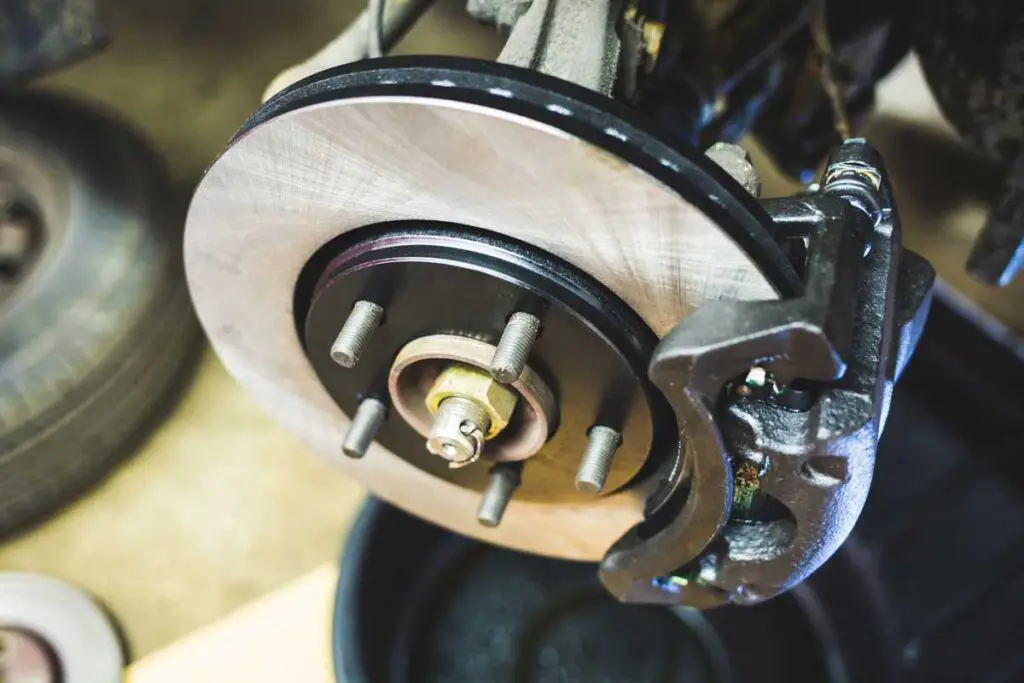
Even taking a short trip to pick up some odds and ends requires you to use your brakes between 20 to 55 times. So, imagine what driving for long periods in rush hour traffic does to your brakes. Your car’s rotors play a significant part in braking and need to be maintained and replaced at certain points throughout your vehicle’s life.
Brake Rotors
There are two types of brake systems that might be in your car. One is disc and the other is a drum.
1. Disc
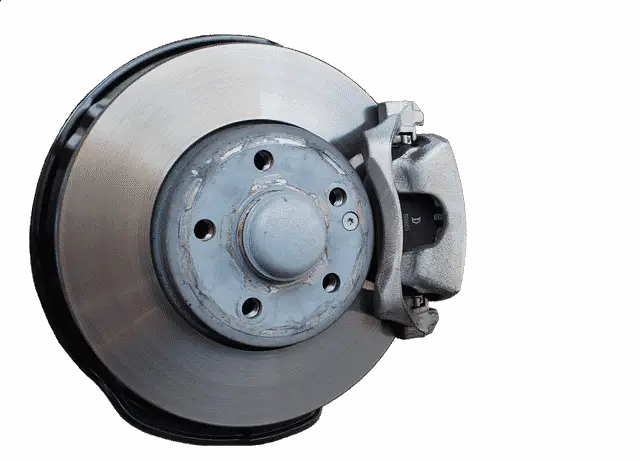
Discs are the most common in newer vehicles today. They have a brake disc or rotor, caliper, and pads. Pressing the brake squeezes the caliper pads on the spinning rotor. The friction from this process slows down the car until it finally stops.
2. Drum
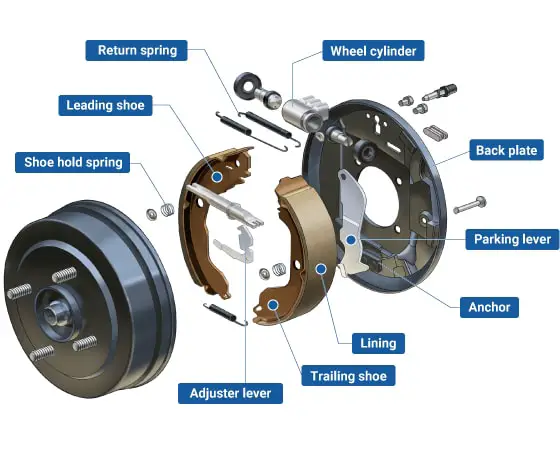
Drum brakes are usually on older cars and, once in a while, a newer car has them on the rear with disc brakes on the front. The difference is that the brake shoes push outwards against the drum.
Disc brakes are preferred simply because they are better when it comes to heat but, because of the ongoing friction and heat that is created, the brake system eventually wears down and needs replacement parts.
Lifetime of Rotors
Around how long do rotors last? Well, there are different answers to that question as a lot of factors play into it. Things like vehicle size, the way you drive, and the quality of the brakes. Many experts say you should replace your rotors every 30-70,000 miles but this is a huge range. Regular inspections of your brakes help determine the right time.
Don’t forget to keep your brake fluid full and replaced when needed. We wrote a couple guides on this: How To Replace Brake Fluid and the Best Brake Fluids.
3 Ways to Know you Need New Brake Rotors
Knowing the signs of needing new rotors is important. Ignoring them can cause issues and end up being pretty costly. Listen for:
1. Squealing
When that high pitched noise starts, you need to replace the brake pads. While this does not signal needing new rotors, it does means you are protecting the rotors from damage. After three to four pad changes, your rotors will need to be replaced.
Pro Tip Brake squeak doesn’t always mean bad pads. Before replacing your Pads and Rotors, check that your Brake Hardware is good. Dodge RAM trucks are notorious for having brake noise and it’s usually fixed by swapping out the brake hardware.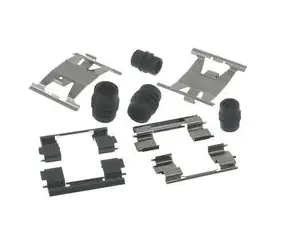
2. Grinding
When you hear grinding, it could mean your brake pads are worn down and are at the metal plate. If you drive like this for any period of time, you will damage the whole system.
3. Vibration
If you feel your steering wheel or brakes vibrate, that can mean that you have warped rotors or rotors that are worn down.
Options for Brake Rotors – Replace or Resurface
If your rotors are not on their last legs, you might be able to get your current set to last for a longer time by resurfacing the rotors instead of replacing them. The rotors are turned or machined, grinding down the metal disc to make it smooth and even so there is very little wear. In contrast, if the rotors are warped, cracked, grooved, have lots of rust, or have become really thin, you need to replace them. The big thing to note is that while resurfacing rotors are cheaper, it’s not a permanent fix.
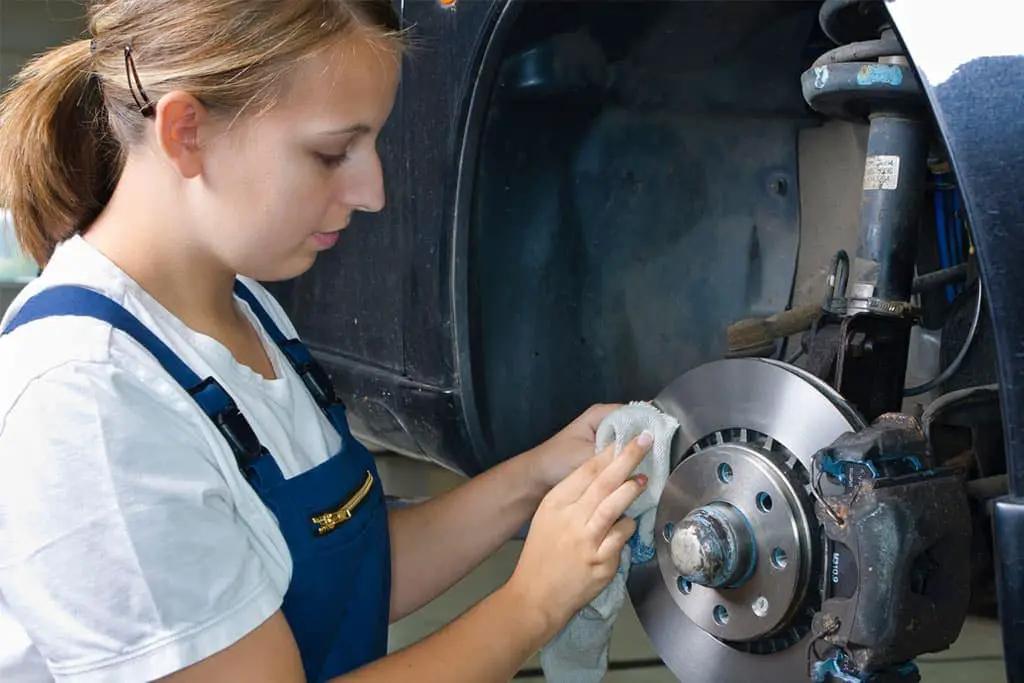
Slowing Down Wear
While there is no way to avoid your brake rotors from wearing down over time, there are ways to extend their life.
- Driving – Driving style is a huge factor when it comes to how fast your rotors wear out. If you ride your brakes and make a lot of hard stops, it wears out your rotors much faster than if you drive less aggressively. If you are a little easier on your brakes, they will last longer.
- Speed limit – Yeah it’s hard to follow sometimes, but it’s easier on your pads, rotors, and calipers.
- Coast – let your engine and transmission slow down your vehicle naturally.
- Only drive with one foot – That’s right Fast and Furious, two-foot driving is hard on the brakes. Your minivan isn’t a Nissan Skyline 🙂
- Do not tailgate – Keeping the proper distance between vehicles means there is less chance you will have to jam on your brakes to stop.
- Driving Routes – Where you drive affects your rotors’ longevity just as much as how you drive. They wear out more quickly if you are always in stop and go traffic. Open highway driving is much easier for your rotors. Roads that are hilly such as mountains or valleys are harder than flat roads. Using manual braking through downshifting can help with this type of wear and tear. The other thing that can play into the rotor wear is the weight of your vehicle. If it is heavy or you are towing a lot of weight and doing it often, your brakes work even harder. Stopping your car with extra weight causes more exertion.
- Tire Maintenance – Brakes and tires significantly affect each other. When one is failing the other is not far behind. If tires have low tread, then you have issues with stopping and lack of grip which makes your brakes work harder.
- Brake Pads – Pads are a major part of the brake system. They push against the rotor to slow the vehicle down and wear out and need replacing somewhere between 30,00 and 70,000 miles. If they get too worn down, the rotors get damaged. The metal plate behind the brake pad wears against the rotors, damaging them as well as the caliper causing very expensive and unnecessary repairs.
- Brake Fluid Type – Make sure the run the correct brake fluid for your car. There are big differences between DOT 3, DOT 4, And DOT 5.1.
Final Thoughts
Read more about brakes with these guides:
- When To Replace Brake Pads
- Brake Pads Cost
- Different Types Of Brake Pads
- Average Lifetime Of Brake Rotors
- Difference Between DOT 3, DOT 4, And DOT 5.1 Brake Fluid
You want your rotors to last as long as possible. By knowing how they work and the things that affect their lifespan, you have a better chance of reaching the 70,000-mile mark simply because you baby them a little more and make sure you drive in a way that keeps them in good shape.
Have you tried all these tips and still having trouble slowing down? You might have a bad brake boost master cylinder. Check out our guide to troubleshooting it.
There’s a lot more to car brakes that simply pads and rotors. Check out our guide on how car brakes work.